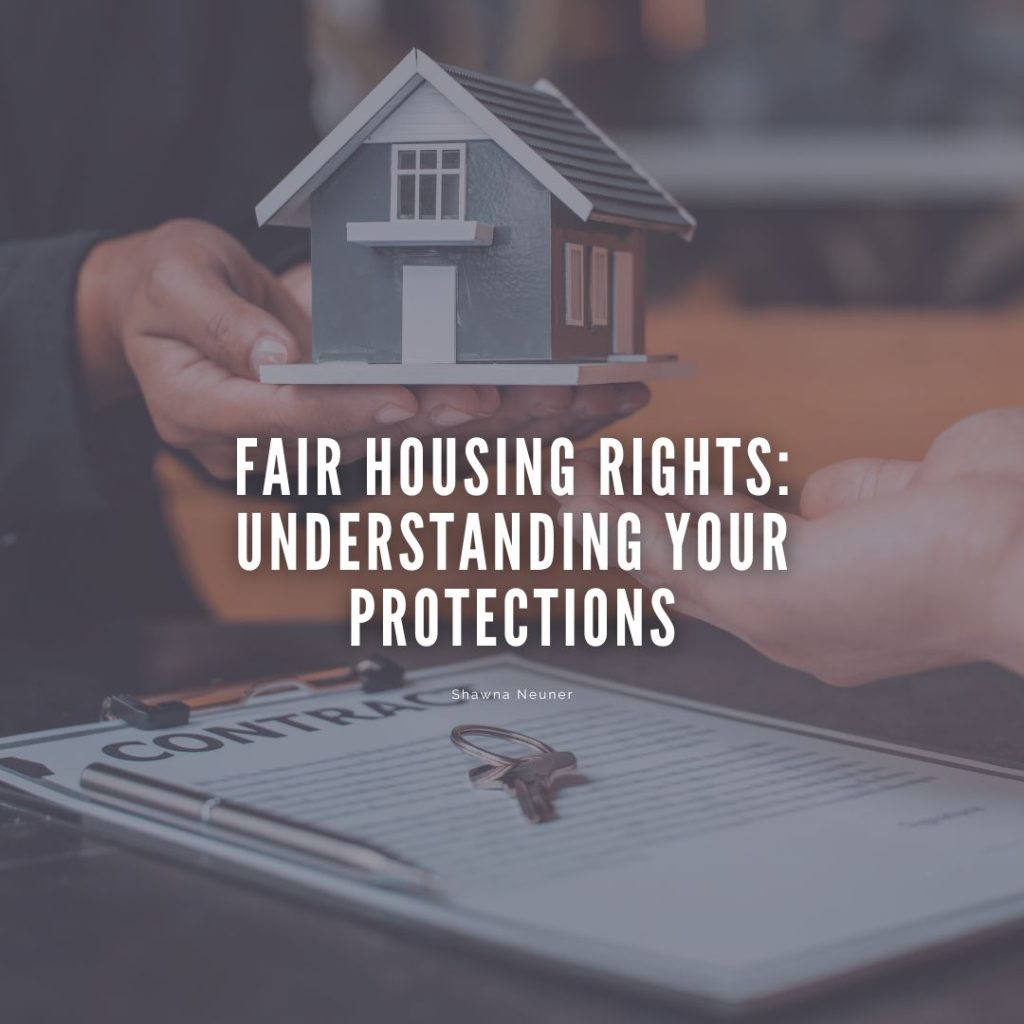The Fair Housing Act is a critical law that ensures everyone has the right to buy, rent, or secure housing without facing discrimination. As a homebuyer, renter, or seller, understanding your rights under this law is essential to protecting yourself and others from unfair practices in the housing market.
What Is the Fair Housing Act?
The Fair Housing Act, enacted in 1968, prohibits discrimination in housing transactions based on specific protected characteristics. It applies to landlords, home sellers, real estate agents, lenders, and anyone involved in the housing process.
Who Is Protected Under the Fair Housing Act?
The Act prohibits discrimination based on these federally protected classes:
- Race
- Color
- National Origin
- Religion
- Sex (including gender identity and sexual orientation)
- Familial Status (presence of children under 18 or pregnancy)
- Disability
In Missouri, an additional protected class exists: Ancestry. Many local jurisdictions also have additional protections, such as veteran status or source of income.
What Does Housing Discrimination Look Like?
Housing discrimination can take many forms, including:
- Refusing to sell or rent a property to someone based on their protected status.
- Setting different terms or conditions for renting, buying, or lending based on discrimination.
- Falsely claiming a property is unavailable when it is not.
- Steering individuals toward or away from certain neighborhoods based on race, religion, or other protected categories.
- Denying reasonable accommodations for people with disabilities.
What Are Your Rights?
As a consumer in the housing market, you have the right to:
- Be treated equally in housing opportunities, regardless of your protected status.
- Live where you choose without being steered or pressured into specific areas.
- Request reasonable accommodations if you have a disability, such as wheelchair ramps or service animal allowances.
- Apply for mortgages and loans without facing discrimination from lenders.
- File a complaint if you experience housing discrimination.
What Should You Do If You Experience Discrimination?
If you believe you have been discriminated against in a housing transaction:
- Document everything – Keep records of interactions, emails, and any potential evidence of discrimination.
- Report the incident – File a complaint with the U.S. Department of Housing and Urban Development (HUD) or your local fair housing authority.
- Seek legal assistance – Many organizations offer free or low-cost legal services to help victims of housing discrimination.
Final Thoughts
Fair housing laws exist to protect everyone’s right to secure housing without fear of discrimination. As a realtor, I am committed to upholding these laws and ensuring that every client is treated fairly and equally. If you have any questions about your housing rights, don’t hesitate to reach out or consult a fair housing agency for more information.
By knowing your rights, you can confidently navigate the housing market and help create a more equitable future for all.

